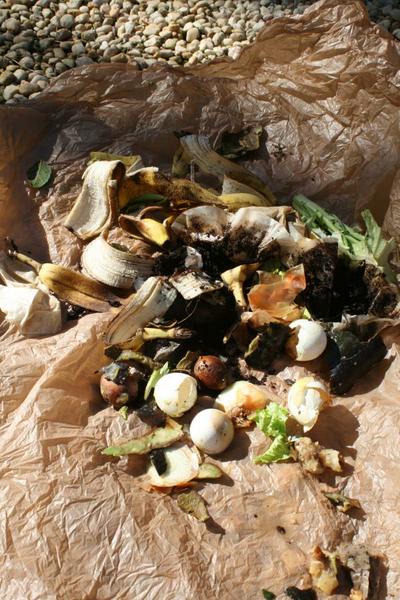Composting 101
go.ncsu.edu/readext?750099
en Español / em Português
El inglés es el idioma de control de esta página. En la medida en que haya algún conflicto entre la traducción al inglés y la traducción, el inglés prevalece.
Al hacer clic en el enlace de traducción se activa un servicio de traducción gratuito para convertir la página al español. Al igual que con cualquier traducción por Internet, la conversión no es sensible al contexto y puede que no traduzca el texto en su significado original. NC State Extension no garantiza la exactitud del texto traducido. Por favor, tenga en cuenta que algunas aplicaciones y/o servicios pueden no funcionar como se espera cuando se traducen.
Português
Inglês é o idioma de controle desta página. Na medida que haja algum conflito entre o texto original em Inglês e a tradução, o Inglês prevalece.
Ao clicar no link de tradução, um serviço gratuito de tradução será ativado para converter a página para o Português. Como em qualquer tradução pela internet, a conversão não é sensivel ao contexto e pode não ocorrer a tradução para o significado orginal. O serviço de Extensão da Carolina do Norte (NC State Extension) não garante a exatidão do texto traduzido. Por favor, observe que algumas funções ou serviços podem não funcionar como esperado após a tradução.
English
English is the controlling language of this page. To the extent there is any conflict between the English text and the translation, English controls.
Clicking on the translation link activates a free translation service to convert the page to Spanish. As with any Internet translation, the conversion is not context-sensitive and may not translate the text to its original meaning. NC State Extension does not guarantee the accuracy of the translated text. Please note that some applications and/or services may not function as expected when translated.
Collapse ▲Fall is the time of year when we are cleaning our landscape and putting our gardens to rest. When we complete these chores, we end up with a lot of waste on the curbside, in a burn pile, or on the way to the landfill. Instead of disposing of leaves, yard trimmings, and kitchen scraps, you can compost them in your backyard. Once the composting process is complete, you can use the finished product to increase the health of your soil and plants.
Materials that can be composted should be broken into two groups: browns and greens. Browns are carbon sources that provide energy to microbes, absorb moisture, and provide structure to your pile. Browns include by-products such as leaves, newspaper, straw, sawdust, cardboard, and small twigs. Greens are nitrogen sources that provide moisture and protein. Greens include grass clippings, vegetables and fruits, manure, coffee grounds, and tea leaves. Do not compost dog or cat feces, diapers, meat, bones, grease, charcoal ash, pine needles, or yard trimmings treated with chemical pesticides.

Kitchen scraps “greens” ready for the compost pile. Photo: Chris Alberti CC BY – 2.0
To begin composting, select a shady site at least six feet from your home and near a water source. Build your pile three to five feet high and at least three feet in diameter. Use a mixture of browns to greens at a ratio of 2 browns to 1 green and water thoroughly. The decomposition process will slow down if there is too little or too much moisture. The compost will be within the right moisture range if a drop or two of water can be squeezed from a handful of material. Turn the piles with a digging fork or shovel once per week by moving the material from the outside to the center to add oxygen. It could take 6 months to 2 years to complete the composting process. Finished compost should have a dark, crumbly appearance and a pleasant earthy odor. The original materials should no longer be recognizable and the pile should have shrunk between 50 -70%. For more information on composting visit the Composting Chapter of the North Carolina Extension Gardener Handbook and the NC State Extension Composting Portal.


